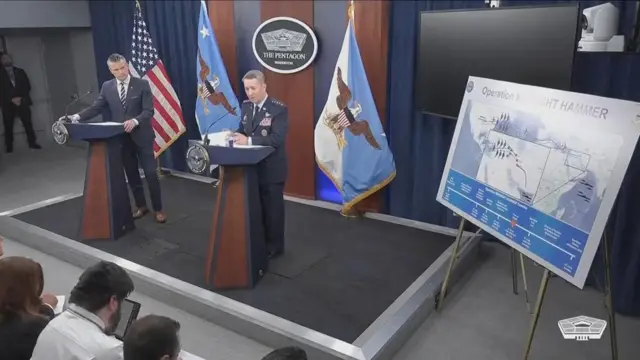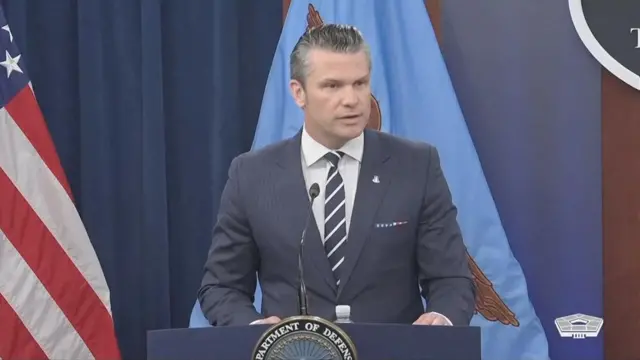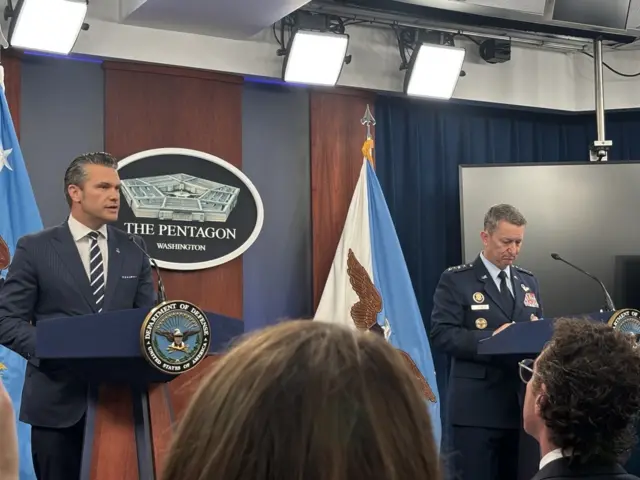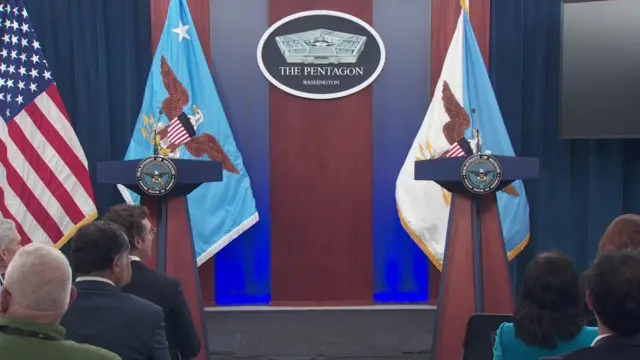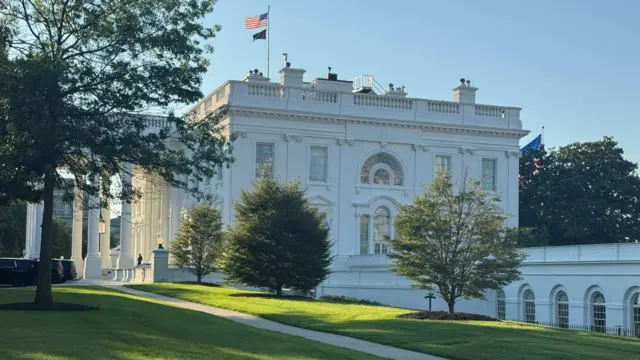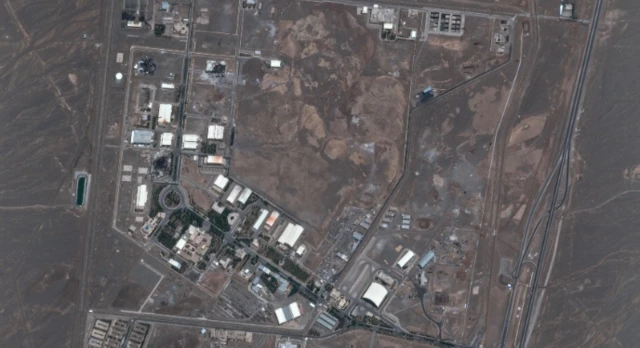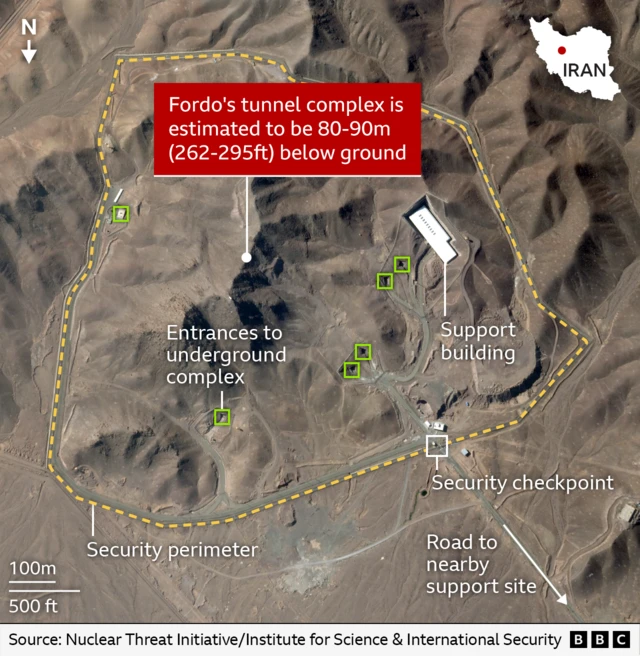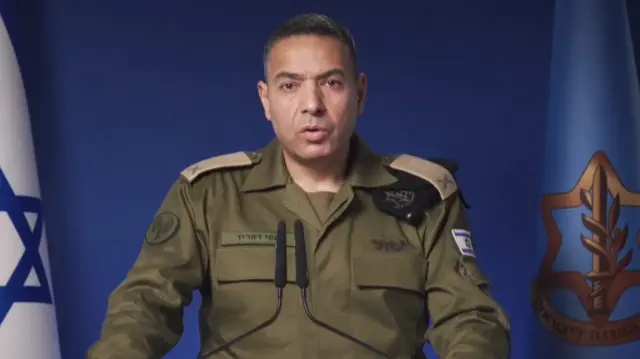Iran's defence systems 'did not see us' - chairman of Joint Chiefs of Staffpublished at 13:22 BST 22 June
Caine says all three Iranian nuclear infrastructure targets were hit between 18:40 Eastern time (23:40 BST) and 19:05 Eastern time (00:05 BST).
He adds that the Tomahawk missile was the last to strike at Isfahan to make sure the US kept "the element of surprise".
"It appears that Iran's surface-to-air missile systems did not see us," he says, adding that during the mission, the US was not aware of any shots fired at the group as they left.
